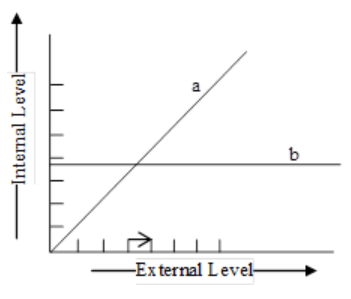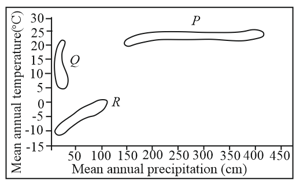Population and Ecological Adaptations
Population and Ecological Adaptations: Overview
This Topic covers sub-topics such as Hibernation, Echolocation, Diapause, Aestivation in Animals, Allen’s Rule, Altitude sickness, Bergmann's Rule, Batesian Mimicry, Mullerian Mimicry, Ecological Equivalents and, Responses to Abiotic Factors
Important Questions on Population and Ecological Adaptations
Which of the following method is used by fungi, and zooplanktons to overcome the temporary short-lived climatic stressful conditions?
Which of the following organisms are not found in the polar regions:
Organisms that maintain homeostasis by physiological means which ensures constant body temperature, constant osmotic concentration etc., despite varying temperature are called:
Which of the following cannot be considered as an adaptation of xerophytes?
The property of a system that regulates its internal environment and tends to maintain a stable, relatively constant condition of properties such as temperature or pH is known as
The following graph represents the organismic response to certain environmental, condition (e.g., temperature) :

Which one of these, or , depicts conformers?
Which of the following regions are not suitable habitat for tiny humming birds:
The plants which can withstand narrow range of temperature tolerance are called
Most of the desert plants bloom during night time because
The xerophytic plants conserve water by storing it in
The trees occurring in two seasons is the characteristic feature of:
Which among the following is a rootless plant?
A lizard-like member of reptile is sitting on a tree with its tail coiled around a twig. This animal could be
Desert can be converted into green land by planting
The desert plants in order to tolerate water stress show
Which of the following statement is incorrect?
As per Allen's rule, mammals of cold regions conserve body heat through
Given is a diagram representing the annual mean temperature and the annual mean precipitation in three biomes and on the planet. All the animals living in these biomes together can be largely grouped into two major classes 'Regulators' and 'Conformers'. Regulators are the animals that can regulate their body temperature and Conformers are those animals whose body temperature changes as per the environmental temperature. Assuming that these animals do not have any specialized adaptations, the correct statement would be

What are the four adaptations of plants?
What would be a plant adaptation that increases the exposure of a plant to light in a dense forest?
